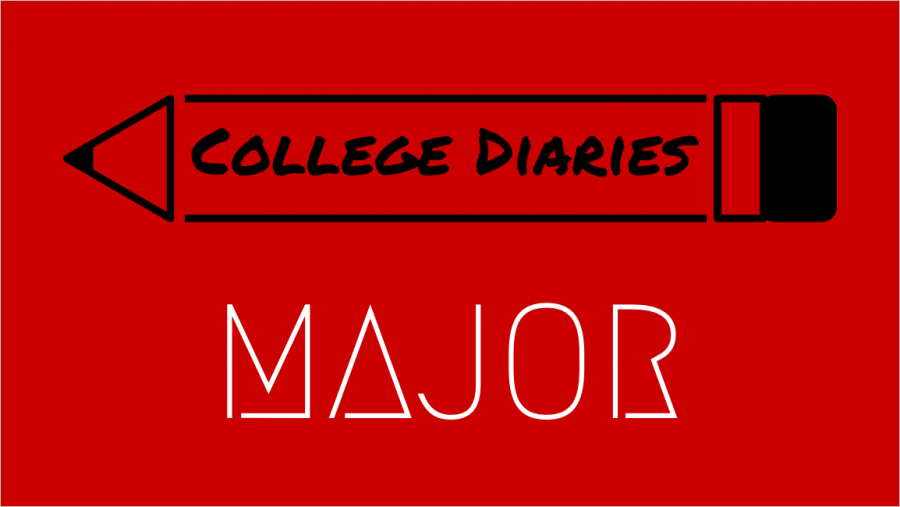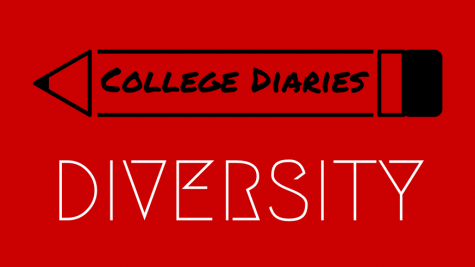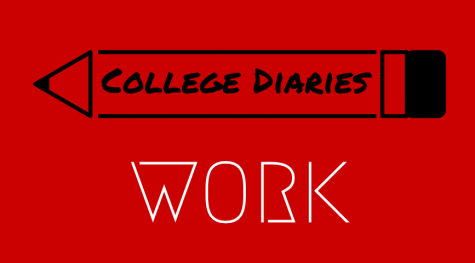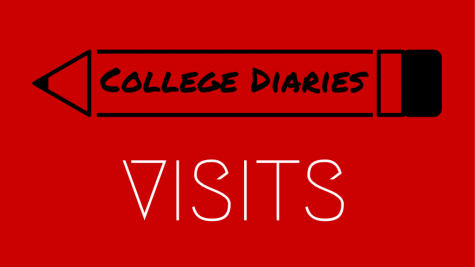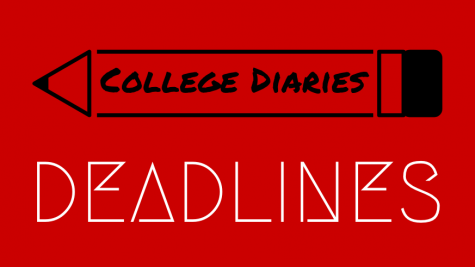College Diaries: Impending future
The beginning of a new school marks a time for growth and learning. As thousands of kids march through the hallways, accompanied by mechanical pencils with their erasers still attached and sparkling white high-top Converse, there is an underlying current of stress among a certain group of students: the seniors. It should be our year, where we reign over the school and assure that this will, indeed, be the best year yet. However, everyone forgot to mention, though, that there is one small thing that most seniors must do before they can coast through their senior year: apply to college.
Oh, yeah, that one small thing. That everyone claims will predict the rest of our lives. So follow me as I navigate the world of college applications, freak out over deadlines and look to my future.
In the past, I’ve been talking a lot about the college application process and actually getting into college. But recently, I’ve been wondering about what happens once I’m accepted. The idea of deciding what I want to do for the rest of my life terrifies me; I think that what I want to be when I’m 40 is a lot different than what I want to be right now.
My mom always told me to do something that I love, but the problem is that I do not have a passion. I do not think that most people do. I thought that being a teenager was all about finding yourself and your passions. But right now, people are telling me that I already have to know what I want to do. It’s kind of frustrating, if you ask me.
Relating this back to me applying to college, many schools ask you to choose a major on your application. What if I want to change my major, though? Some schools make it very easy to change, while others make it nearly impossible.
There was a period of time where I wanted to be an engineer. In order to do that, though, you have to have a degree from an engineering school. At many universities, it is more difficult to get into the school of engineering than into the university as a whole. This also means that getting into the school of engineering once you are already in the college is much harder to do than going from engineering to a liberal arts major.
This makes me nervous because what if I get to school and find out that I actually hate my intended major? Will I then not be able to enter the school of engineering? Will I be forbidden from pursuing a career just because I did not know that I wanted to be that thing when I was 18? Thoughts like these are why declaring a major really makes me nervous.
So, I’ve done my best to compile a list of things that I recommend each student think about when choosing a future life path:
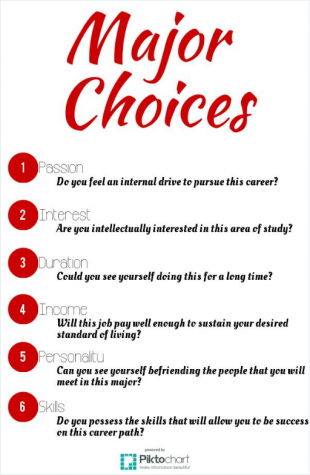
1)Passion
You should have an internal drive to learn about and actively pursue the career. If you and you alone want to do it, and you do not feel pressured into choosing this career and major by other people, the it is probably a good choice for you.
2) Interest
Would you be able to study this subject and read literature on it? There will be lots of studying in college (hopefully), and you will need to be able to handle lots of information on one certain subject.
3) Duration
You need to be able to handle being in this specific industry for a long time. Yes, you can switch jobs, but chances are that you will be in the same field. In addition, try not to choose a job that will soon become antiquated, as you will then be out of a job.
4) Income
How much will your intended career pay? Of course this should not be your number one motivation for choosing a career, but I still think that it should play a factor. I feel that your income should be able to sustain the level of living that you desire. Whether you want to live in a mansion or a shack, you must be able to pay for that.
5) Personality
Different jobs are better-suited towards different people. An extremely shy person may not like a job where they have to do lots of public speaking. Similarly, an extremely outspoken person would probably not like a job where they have to sit behind a desk everyday. Additionally, what kind of people are drawn towards your major, and could you see yourself being friends with them? Of course, there are lots of different people in all sorts of fields, but it is just something to consider.
6) Skills
Certain types of jobs require different skill sets. For example, a physicist might require someone to have strong math and science skills. If you are truly horrible at math and science, this may not be an ideal career path for you. Keep in mind, though, that a deficiency in any given area can be made up for with hard work.

Hannah O'Leary a senior who finds herself as the editor-in-chief of Highlander Publications. Hannah loves designing magazine spreads, but finds that she...

